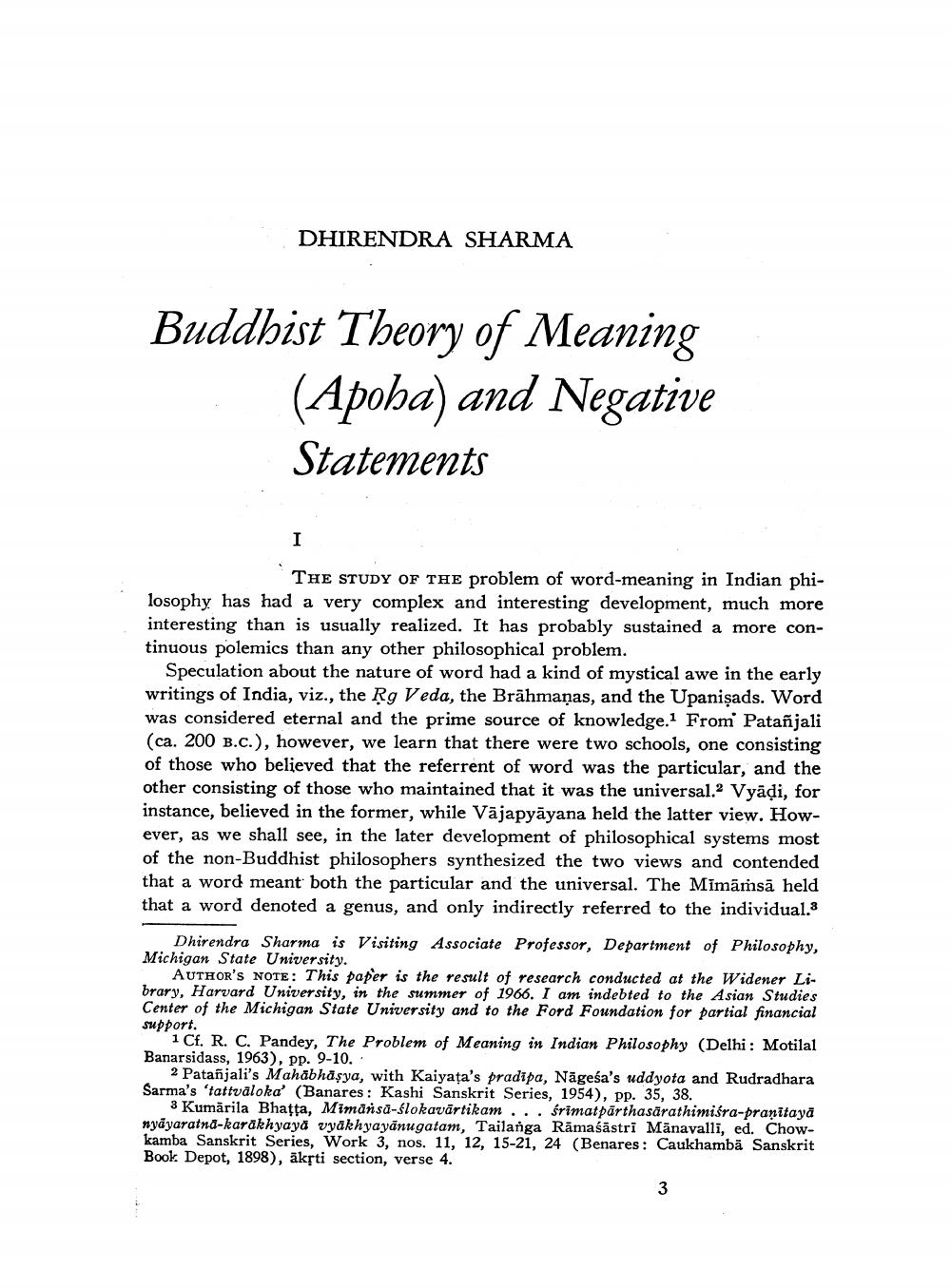________________
DHIRENDRA SHARMA
Buddhist Theory of Meaning
(Apoha) and Negative
Statements
THE STUDY OF THE problem of word-meaning in Indian philosophy has had a very complex and interesting development, much more interesting than is usually realized. It has probably sustained a more continuous polemics than any other philosophical problem.
Speculation about the nature of word had a kind of mystical awe in the early writings of India, viz., the Rg Veda, the Brāhmaṇas, and the Upanişads. Word was considered eternal and the prime source of knowledge. From Patanjali (ca. 200 B.c.), however, we learn that there were two schools, one consisting of those who believed that the referrent of word was the particular, and the other consisting of those who maintained that it was the universal.2 Vyādi, for instance, believed in the former, while Vājapyāyana held the latter view. However, as we shall see, in the later development of philosophical systems most of the non-Buddhist philosophers synthesized the two views and contended that a word meant both the particular and the universal. The Mīmāṁsā held that a word denoted a genus, and only indirectly referred to the individual.
Dhirendra Sharma is Visiting Associate Professor, Department of Philosophy, Michigan State University.
AUTHOR'S NOTE: This paper is the result of research conducted at the Widener Library, Harvard University, in the summer of 1966. I am indebted to the Asian Studies Center of the Michigan State University and to the Ford Foundation for partial financial support.
1 Cf. R. C. Pandey, The Problem of Meaning in Indian Philosophy (Delhi: Motilal Banarsidass, 1963), pp. 9-10.
2 Patañjali's Mahābhāşya, with Kaiyata's pradipa, Nägeśa's uddyota and Rudradhara Sarma's 'tattvaloka' (Banares: Kashi Sanskrit Series, 1954), pp. 35, 38.
3 Kumārila Bhatta, Mimarsa-ślokavārtikam ... śrimatpārthasarathimiśra-pranītayā nyayaratna-karåkhyaya vyakhyayānugatam, Tailanga Rāmaśästri Mänavalli, ed. Chowkamba Sanskrit Series, Work 3, nos, 11, 12, 15-21, 24 (Benares: Caukhamba Sanskrit Book Depot, 1898), āksti section, verse 4.




